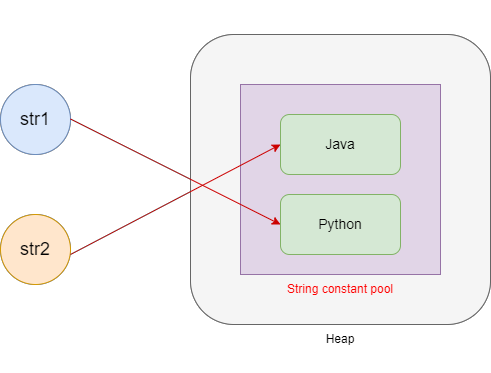Why Are Strings Immutable in Java? Detailed Evaluation for Designers
Why Are Strings Immutable in Java? Detailed Evaluation for Designers
Blog Article
What Is Immutable Strings and How It Works
In the realm of programs, understanding the idea of unalterable strings is paramount for developing secure and durable applications. Immutable strings refer to strings that can not be altered after they are produced, making certain data honesty and predictability within the code.
The Fundamentals of Immutable Strings
Immutable strings, as an essential principle in programming, are personality sequences that can not be altered as soon as they are created. This suggests that as soon as a string is designated a worth, that value can not be changed. In languages like Python and Java, strings are unalterable items, leading to numerous implications in regards to memory administration and data integrity.
Among the crucial advantages of immutable strings is that they supply a complacency in data manipulation. Given that the material of an unalterable string can not be modified, it guarantees that the original information continues to be undamaged, minimizing the danger of unplanned adjustments throughout program execution (Why are strings immutable in Java?). This home also streamlines debugging procedures, as programmers can trust that when a string is specified, its value will certainly not be unintentionally changed
When a new string is created based on an existing one, rather than changing the initial string, the new value is saved independently. Generally, comprehending the basics of unalterable strings is important for grasping shows principles and maximizing code effectiveness.
Benefits of Immutable Strings
Building upon the safety and performance advantages of immutable strings, their advantages encompass improving code integrity and streamlining simultaneous programs jobs. By being unalterable, strings can not be customized after creation, which removes the threat of unplanned changes in the data they save. This inherent immutability makes certain that when a string is developed, its value continues to be constant throughout the program's execution, decreasing the chances of pests brought on by unexpected changes.
In addition, unalterable strings add to code reliability by making it easier to reason concerning the state of a program. Given that strings can not be altered, developers can trust that a string will always hold the very same worth, streamlining debugging and upkeep efforts. This predictability leads to more dependable and steady codebases.

Execution in Programming Languages
Within various programming languages, the consolidation of unalterable strings is a basic element that affects exactly how data is taken care of and adjusted within code frameworks. The application of unalterable strings varies throughout various shows languages, with each language offering its own devices to support this principle.
In contrast, languages like C and C++ do not have integrated support for immutable strings. Designers in these languages should manually implement immutability by imposing regulations within their code to stop direct adjustments to string items.
Ideal Practices for Working With Unalterable Strings
When taking care of immutable strings in programs languages like Java and Python, adhering to best techniques makes sure safe and efficient data adjustment. One of the crucial best practices is to make use of StringBuilder or StringBuffer as opposed to directly adjusting strings, especially when managing extensive concatenation operations. These courses give mutable choices for string control, assisting to avoid unnecessary memory allocations and improving efficiency.
Additionally, when working with delicate data such as passwords or API keys, it is critical to stay clear of storing them as plain text in immutable strings. Making use of secure storage space systems like char selections or specialized collections for taking care of delicate info assists mitigate protection dangers connected with immutable strings.
Real-world Applications and Examples
Exploring sensible executions of unalterable strings in various sectors discloses their considerable effect on data stability and system dependability. In the healthcare industry, unalterable strings play an essential duty in making sure the security and discretion of person data. By avoiding unapproved modifications to sensitive details such as medical documents and prescriptions, immutable strings help preserve compliance with strict privacy guidelines like HIPAA.
Financial institutions additionally profit from the unalterable nature of strings to boost the safety of customer information and purchase records. Immutable strings assist stop fraud and unapproved alterations to financial details, supplying a robust defense versus cyber hazards and guaranteeing the depend on and self-confidence of customers.

Final Thought
Finally, unalterable strings are dealt with and stable series of characters that supply advantages such as thread security and enhanced efficiency in shows. They are applied in different shows languages to ensure data honesty and security. Ideal methods for dealing with unalterable strings include preventing direct modifications and utilizing techniques that return brand-new string objects. Real-world applications of immutable strings consist of information encryption, caching, and string control jobs.
Immutable strings refer to strings that can not be altered after they are created, making sure data stability and predictability within the code. When a brand-new string is produced based on an existing one, rather than changing the original string, the new value is saved individually.In languages like Java and Python, strings their explanation are unalterable by default, suggesting that when a string item is produced, its worth can not be transformed - Why are strings immutable in Java?. Best methods for working with immutable strings consist of avoiding straight adjustments and using techniques that return new string things. Real-world applications of unalterable strings include information encryption, caching, and string adjustment jobs
Report this page